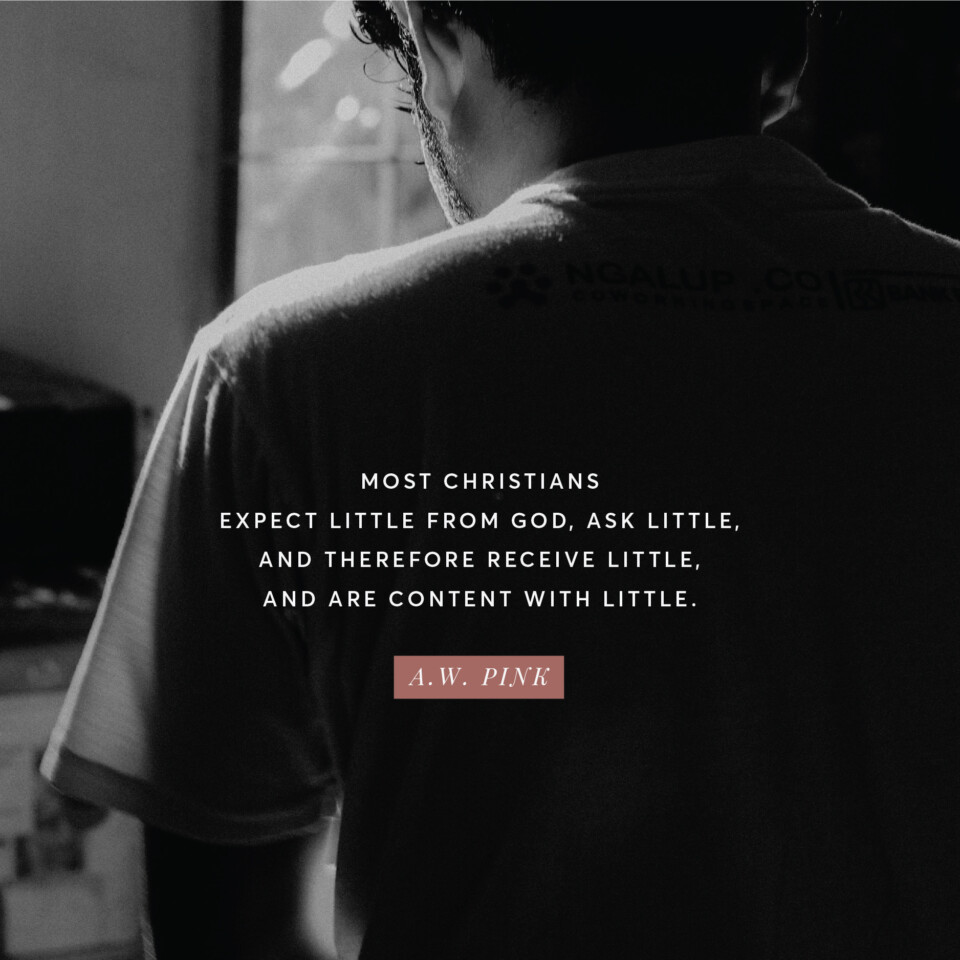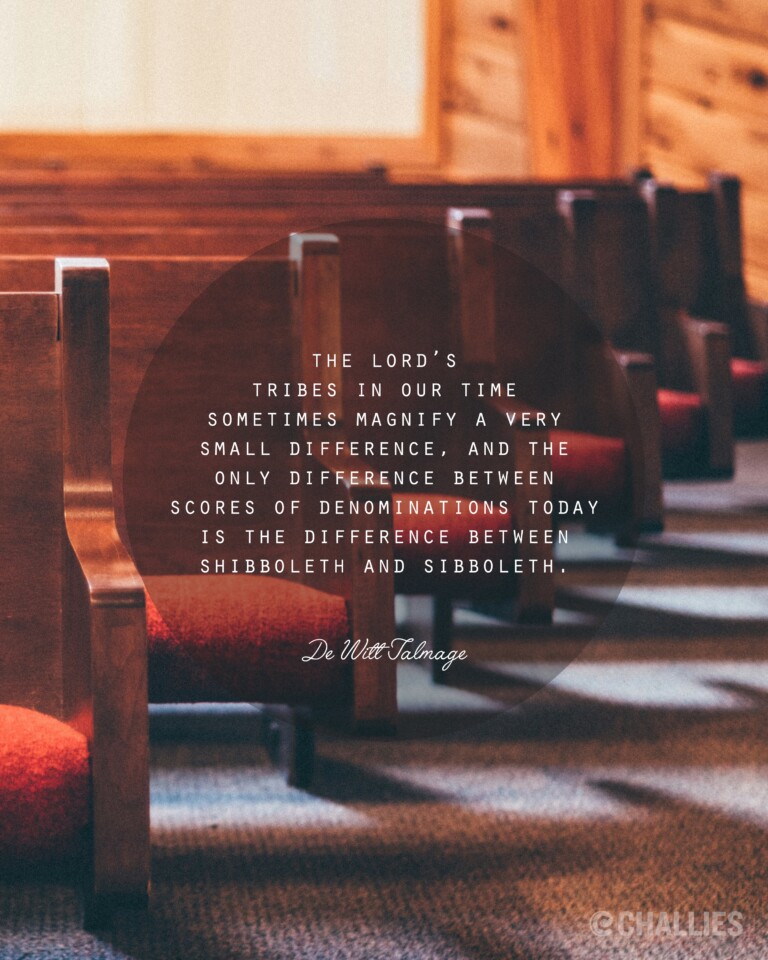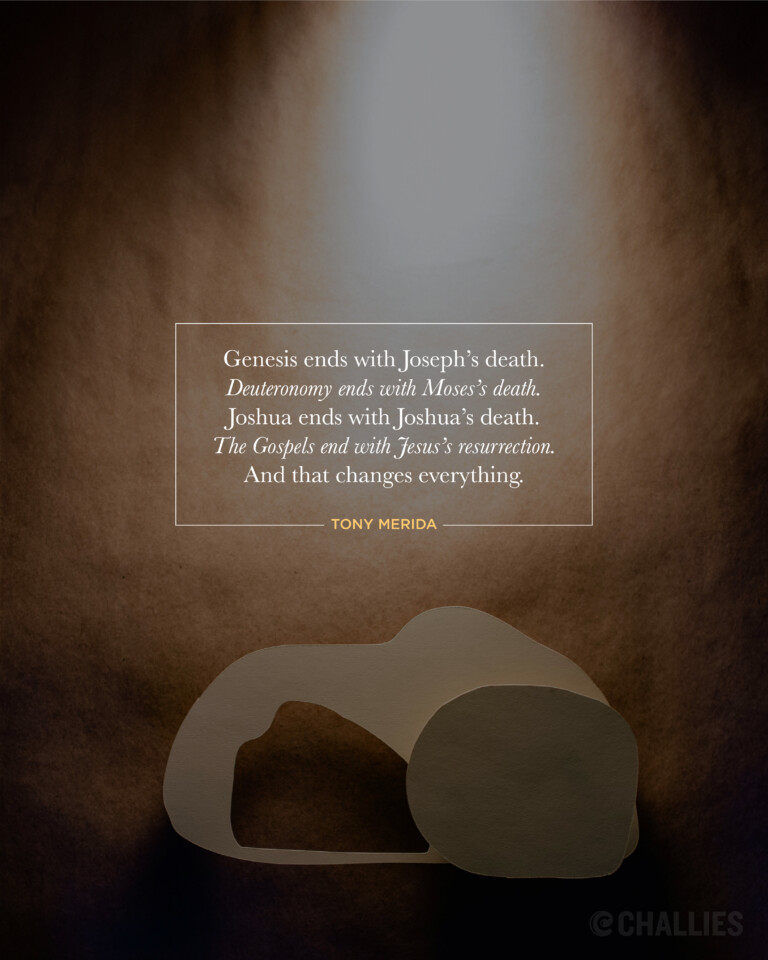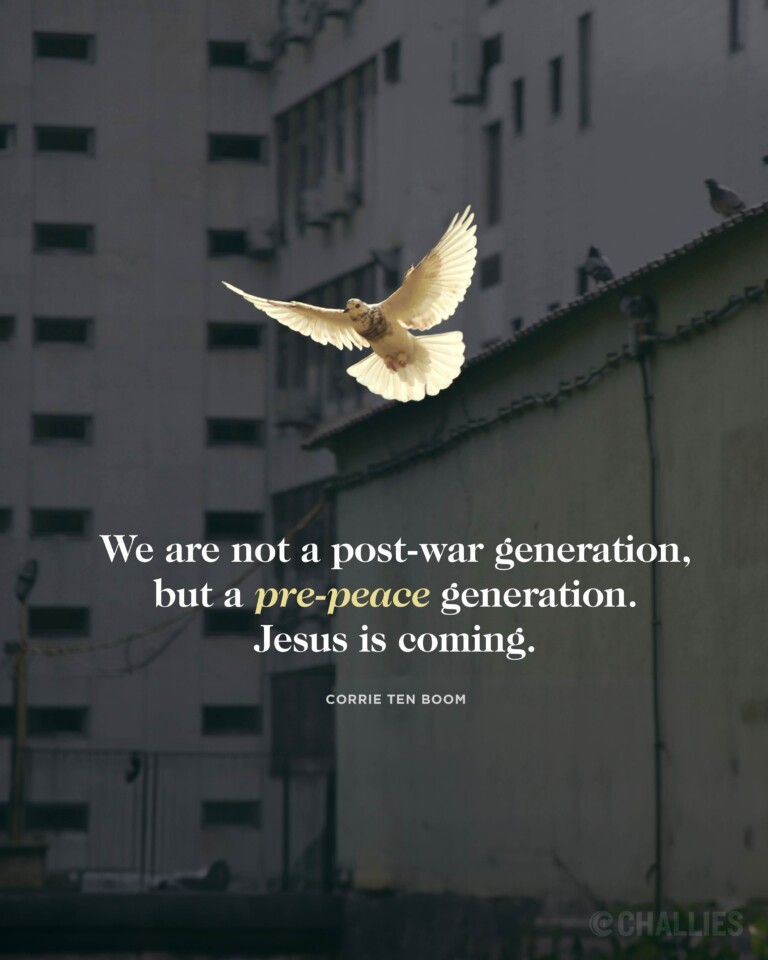 On April 28, Canadians elected the Liberal Party of Canada to a fourth consecutive term. This is a rare feat for a political party in Canada and in this case, one of special significance, for just months ago, the Liberals seemed destined for near-complete destruction. The cost of living was spiking, the quality of life was falling, and through it all Prime Minister Justin Trudeau had become historically unpopular.]]>
On April 28, Canadians elected the Liberal Party of Canada to a fourth consecutive term. This is a rare feat for a political party in Canada and in this case, one of special significance, for just months ago, the Liberals seemed destined for near-complete destruction. The cost of living was spiking, the quality of life was falling, and through it all Prime Minister Justin Trudeau had become historically unpopular.]]>
On April 28, Canadians elected the Liberal Party of Canada to a fourth consecutive term. This is a rare feat for a political party in Canada and in this case, one of special significance, for just months ago, the Liberals seemed destined for near-complete destruction. The cost of living was spiking, the quality of life was falling, and through it all Prime Minister Justin Trudeau had become historically unpopular. His party had also become historically unpopular and was able to press on only by being propped up by the New Democratic Party and then proroguing Parliament. At that time, polls showed the Conservative Party under Pierre Poilievre would triumph to a degree never before seen in Canadian history.
But then Donald Trump got involved and did so in a couple of different ways.1 First, following a fateful meeting with Justin Trudeau, he began to refer to Canada as the 51st state and its Prime Minister as a mere governor. He made it clear that he believed Canada should revoke its sovereignty and become part of the United States. Second, he began to treat Canada as more of an enemy than an ally, putting heavy tariffs in place and speaking of how Canada has been taking advantage of the United States by stealing her jobs and maintaining unfair trade surpluses. Almost instantly, the political scene in Canada was utterly transformed.
Justin Trudeau eventually resigned and the Liberals chose Mark Carney as his successor. Carney, a former governor of both the Bank of Canada and the Bank of England, was almost entirely unknown to Canadians before putting his hat in the ring and being appointed Prime Minister. In his short initial tenure in office, he quickly passed some of the measures promised by Pierre Poilievre, such as revoking the hated carbon tax, while adopting several components of the Conservative platform as his own. This took the wind out of the Conservative sails and essentially narrowed the election to a referendum on which leader could best stand up to Donald Trump and save the Canadian economy. Many believed it came down to the choice between a career politician with no business experience or a wealthy businessman with slim political experience.
Canada has always been a country that regards the Liberal Party as its “natural governing party” and that proved true once more. Canadians quickly forgave or forgot about their concerns from the last 10 years of Liberal governance and grew enthusiastic about Carney. The Liberal slide was not only stopped but utterly reversed. Though the Liberals fell just short of a majority government, they won 25 seats more than the Conservatives and now begin this term with quite a strong mandate. The New Democratic Party was devastated and has nearly ceased to exist—their supporters swinging to the Liberals helped secure the victory. Between the seven NDP seats and the 23 won by the Bloc Québécois, the Liberals should be able to cling to power easily enough by forging alliances.2
Shockingly, Pierre Poilievre, the man who until recently seemed sure to be Canada’s next Prime Minister, lost his seat. Though he intends to remain the leader of his party, he cannot be present in the House of Commons when parliament is in session, and this calls into question whether he can effectively serve as leader of the opposition party. Most people assume his party will soon find a seat for him, but that process may take many months. It’s almost impossible to describe how big a shock and how big a collapse this represents for both the man and his party.
So what does the future hold? Mark Carney is a self-proclaimed elite globalist who is also socially progressive and an adamant environmentalist—all matters that help predict his course for the next four years. His platform is one of running vast deficits as a means of propping up the Canadian economy while he transforms it from depending upon its relationship with the United States to instead looking east to Europe and West to Asia. During the election, he presented himself as a man who will stand up to President Trump, but it’s possible he will soon strike a tone of collegiality and attempt to renegotiate the relationship between the countries.3 Yet solving the American issue may actually harm him since, when that threat has been quelled, Canadians will quickly remember other urgent matters like inflation, the cost of living, sparse housing, and faltering healthcare—the very matters that caused his predecessor’s downfall.
There will be lots of time to analyze how the Conservative’s massive lead evaporated. Donald Trump will certainly be at the center of any analysis, though I expect it will also prove to be a combination of the Liberals outfoxing the Conservatives and the Conservatives focusing so much energy on Justin Trudeau that when he stepped down, they became almost irrelevant. In the end, they were unable to make an effective pivot from Trudeau to Trump. Many will wonder whether the Conservatives were too conservative or not conservative enough and as the party picks itself back up, it will need to decide whether it will bear down into policies that are fiscally and socially conservative or whether it will align itself just to the right of the Liberal Party. (For what it’s worth, I’d prefer the former but predict the latter.)
In the meantime, here are some matters that would be good to pray about.
- Canadians tend not to speak about how they vote, but I expect many or most are disappointed at the results of the election. Hence, it would be good to pray that Canadian Christians will not despair over what they assume will be a bad government, but instead fix their ultimate trust on God.
- Prime Minister Carney’s social policies are likely to be extremely progressive and will inevitably continue to come into contact with Christian convictions and freedom of religion. Pray that Christians will remain free to worship according to Scripture.
- The Liberal Party has long fostered animosity toward pregnancy care centers. They have attempted to further restrict them and strip them of their charitable status in the past and are likely to press forward with this policy in the near future.
- There are also indicators that the Liberals may wish to revoke the charitable status of churches—at least churches that will not in some way indicate they are “affirming.” While the Christian faith in no way depends upon charitable status, it would be a major change for Christians to no longer be issued tax receipts for their donations.
- The Liberal government seems intent on increasing euthanasia in Canada by further extending it to young people and those whose only condition is a mental illness. Medical Assistance in Dying is already common among senior citizens and those with terminal illnesses and may soon become much more so. Pray that Canadians would once again come to value life.
- Of course, and as always, pray that this government, despite many of its policies, would enable Christians to “lead a peaceful and quiet life, godly and dignified in every way” (1 Timothy 2:2).
- Let me reiterate what I’ve said in the past: I hold no animosity toward President Trump. I am simply describing his effect in another country. ↩︎
- See here for a bit more analysis. ↩︎
- WSJ has some suggestions on how he may proceed. ↩︎
 A La Carte: Young men wanted / The glory and danger of apologetics / God's guidelines for sex aren't arbitrary / How much is our church worth? / People loved the darkness / and more.]]>
A La Carte: Young men wanted / The glory and danger of apologetics / God's guidelines for sex aren't arbitrary / How much is our church worth? / People loved the darkness / and more.]]>
Over at Westminster Books you’ll find a great deal on a fascinating book: A City on the Hill by Caleb Morell.
Today’s Kindle deals include a commentary, a book on forgiveness, a book on overcoming lust, and much more. You’ve also got just two days to get the works of John Stott at a steep discount.
(Yesterday on the blog: Eric’s Greatest Race)
Young Men Wanted: A Missions Call for the Unmarried
Brooks Buser writes about former days when many young, unmarried men went to the mission field. “What has changed over the last couple of centuries? Let me offer three reasons for why I think young, unmarried men rarely make it to the front edges of gospel advance, along with three remedies that might help get them there.”
The Glory and Danger of Apologetics
Nicholas McDonald writes about James K.A. Smith and describes both the glory and the danger of apologetics.
God’s Guidelines for Sex Aren’t Arbitrary
Trevin Wax goes to some lengths to ensure Christians understand that God’s guidelines for sex aren’t arbitrary. “In a cultural moment saturated with sexual confusion, understanding the reasons behind God’s instructions about sexuality is vital—not just knowing what the Bible says but grasping why the Bible’s commands are good.”
How Much Is Our Church Worth?
“Last week, I was with a friend who is not a Christian and we were discussing the prices of properties in Ealing. He asked me, ‘What is your church worth?’ I was slightly shocked by the question and didn’t know how to answer. I knew he was asking about the value of the building, but it is a wonderful question: ‘how much is your church worth?'”
People Loved the Darkness Rather Than the Light
Mitch Chase: “Think of it: people love the darkness and hate the light. The very opposite should be true. But in a fallen world, we can observe tragic things that we wish didn’t happen. One such tragic thing is the hating of what should be loved and the loving of what should be hated.”
Themelios 50.1
Those who wish to do some in-depth theological reading may be interested in looking at the new issue of the TGC’s journal Themelios.
Flashback: Why We Cringe at “Submit”
The worldly thinking that constantly creeps into our minds is that our value and our dignity as people comes from our function or role, from what we do relative to other people. The Bible says something different.
]]> My new book releases today! Eric's Greatest Race is a fully illustrated graphic novel that tells young readers the story of Eric Liddell, the famous Olympian whose steadfast courage and commitment to Christ has inspired generations of believers. It is my sincere hope that it will introduce a whole new generation to a man whose life is a worthy example of service to the Lord.]]>
My new book releases today! Eric's Greatest Race is a fully illustrated graphic novel that tells young readers the story of Eric Liddell, the famous Olympian whose steadfast courage and commitment to Christ has inspired generations of believers. It is my sincere hope that it will introduce a whole new generation to a man whose life is a worthy example of service to the Lord.]]>
My new book releases today! Eric’s Greatest Race is a fully illustrated graphic novel that tells young readers the story of Eric Liddell, the famous Olympian whose steadfast courage and commitment to Christ has inspired generations of believers. It is my sincere hope that it will introduce a whole new generation to a man whose life is a worthy example of service to the Lord.

Eric Liddell was an athlete, missionary, and prisoner whose life was a series of remarkable twists and turns, from his refusal to run on a Sunday in the 1924 Olympics (as depicted in the Oscar-winning film Chariots of Fire) to his extensive missionary work, and finally to his imprisonment during World War II. Through it all, Eric never abandoned his faith in God.
Written and illustrated as a graphic novel, Eric’s Greatest Race tells Eric Liddell’s entire life story and educates young readers about important historical events and concepts along the way. Children will encounter a real-life hero whose incredible impact on Christianity and the world lives on today.
- Buy it at Amazon or Westminster Books
Sample Pages

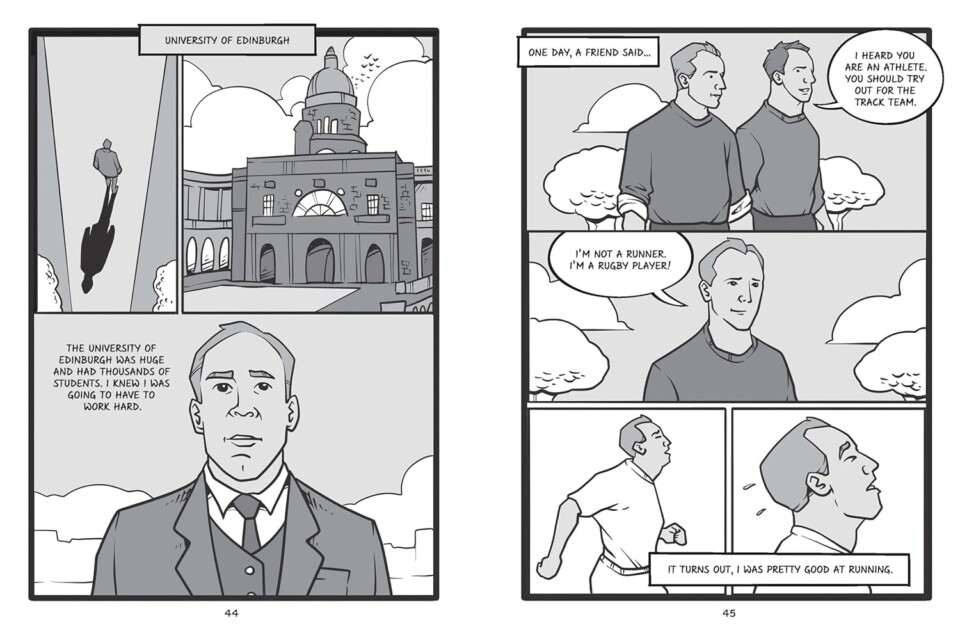
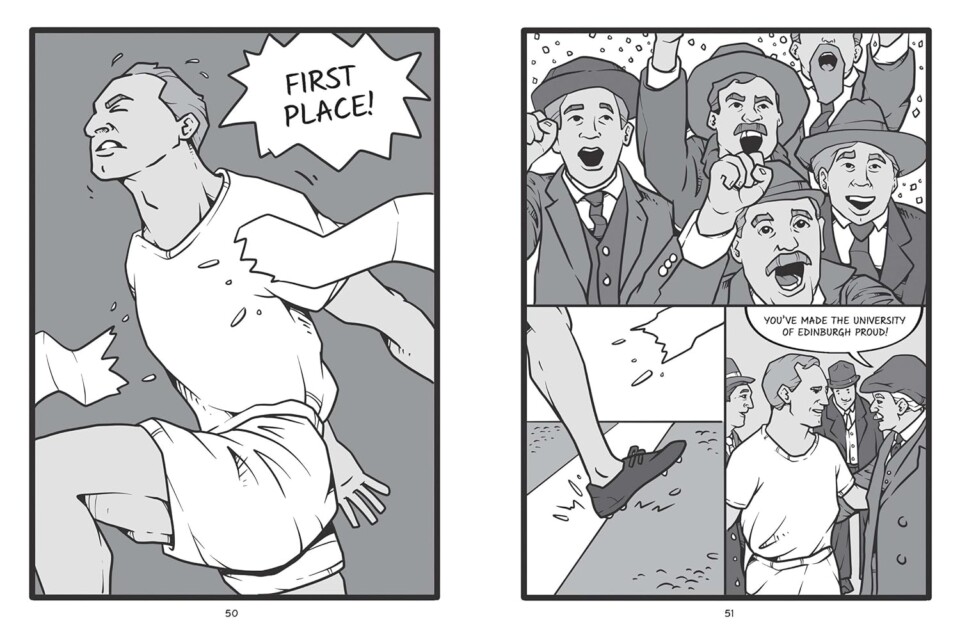
Endorsements
“Eric Liddell has been a hero of mine since boyhood not only because he’s Scottish and an athlete but primarily because of his strong Christian faith. I read it as soon as it arrived and was quickly reminded of what made Eric so special. This mini biography is inspiring and wonderfully illustrated. The text is clear, the graphics are superb, and the hero is Jesus.”
—Alistair Begg, senior pastor of Parkside Church in Cleveland, Ohio
“For as long as I can remember, I have been drawn to the story of Eric Liddell. His life of heroic service includes three things I love: missions, Scotland, and running! I’m grateful for this graphic novel as it gives a new way to tell Liddell’s story of courage and faithfulness to Christ. I’m eager to sit down with my family and share this story.”
—Kevin DeYoung, senior pastor of Christ Covenant Church in Matthews, North Carolina
“Tim Challies has written an enjoyable and spiritually beneficial graphic novel for young people on the life of Eric Liddell. In a well-paced fashion, the novel relates the highlights of Eric’s life, including his challenging boyhood, his celebrated athletic successes as a young man, his subsequent missionary service in China, and his eventual confinement and death in a Japanese prison camp during World War II. The skilled storytelling and artwork are sure to attract and hold the attention of young readers from beginning to end. Challies also does an outstanding job of weaving Liddell’s edifying spiritual perspectives and helpful historical factoids into the narrative in interesting, unobtrusive ways.”
—Vance Christie, historical Christian biographer
Buy it at Amazon or Westminster Books
]]> A La Carte: Has the decline of U.S. Christianity finally stopped? / Holding space for joy and sorrow / No one ever hated his own body / Wisdom principles for Christian parenting / The article you don't want to read / A new book / Kindle deals / and more.]]>
A La Carte: Has the decline of U.S. Christianity finally stopped? / Holding space for joy and sorrow / No one ever hated his own body / Wisdom principles for Christian parenting / The article you don't want to read / A new book / Kindle deals / and more.]]>
Eric’s Greatest Race is available today! This is the first book I’ve written for kids instead of adults. You can learn all about it right here.
Today’s Kindle deals include one that offers biblical answers to questions about race and racism and another about the grit of a God-fearing woman. There’s lots more as well.
(Yesterday on the blog: When God Plants an Acorn, He Means an Oak)
Has the Decline of U.S. Christianity Finally Stopped?
Joe Carter: “While media narratives often frame American religion as being in terminal decline, the data tells a more nuanced story. For church leaders, these findings point toward both significant challenges and also genuine reasons for hope, providing us with direction rather than just confirming our fears.”
Holding Space for Joy and Sorrow
Shobana Vetrivel considers the way joy and sorrow intermingle in our lives. “At the end of last year, I attended a wedding and a funeral on the same day. It was an experience of excruciating sorrow to witness the sudden passing of someone who was immensely loved and whose life, affection, and witness shaped my life in many ways. It was also a thrilling joy to celebrate the wedding of a couple I am deeply fond of, whose love for one another and deep friendship shone on their faces.”
A Farm with a Difference
See how Caring For Life, a Christian ministry, uses its ‘farm with a big difference’ to help broken and abused men and women find peace and fulfill their God-given mandate to work and use their gifts. Read how lives are being transformed through their many projects. (Sponsored)
‘No One Ever Hated His Own Body’ — Really?
What could Paul have meant when he wrote, “No one ever hated his own body?” After all, some people have a deep loathing of their body.
The Generous Life
“Two of the key idols of our age are self-fulfillment and monetary gain, and the second is often a pit stop on the way to the first. Monetary gain can serve as the key to unlock the door to the promised land of self-fulfillment, so both are pursued simultaneously at the cost of a life centered on God’s glory and others’ good. In contrast to the generous life, which sacrifices self-fulfillment for God’s glory and others’ good, the selfish, idolatrous life pours itself out in an effort to fill itself up.”
Wisdom Principles for Christian Parenting
Marny Köstenberger describes three important principles related to parenting.
The Article You Don’t Want to Read
Even though you may not want to, perhaps you should.
Flashback: The Great Man and the Local Church
It is good to thank God for those few men and few women who have been granted high podiums and wide ministries…But they are not the story of what God is accomplishing in this world. The true story happens when the church gathers as God’s local community here and there, near and far, week by week.
]]>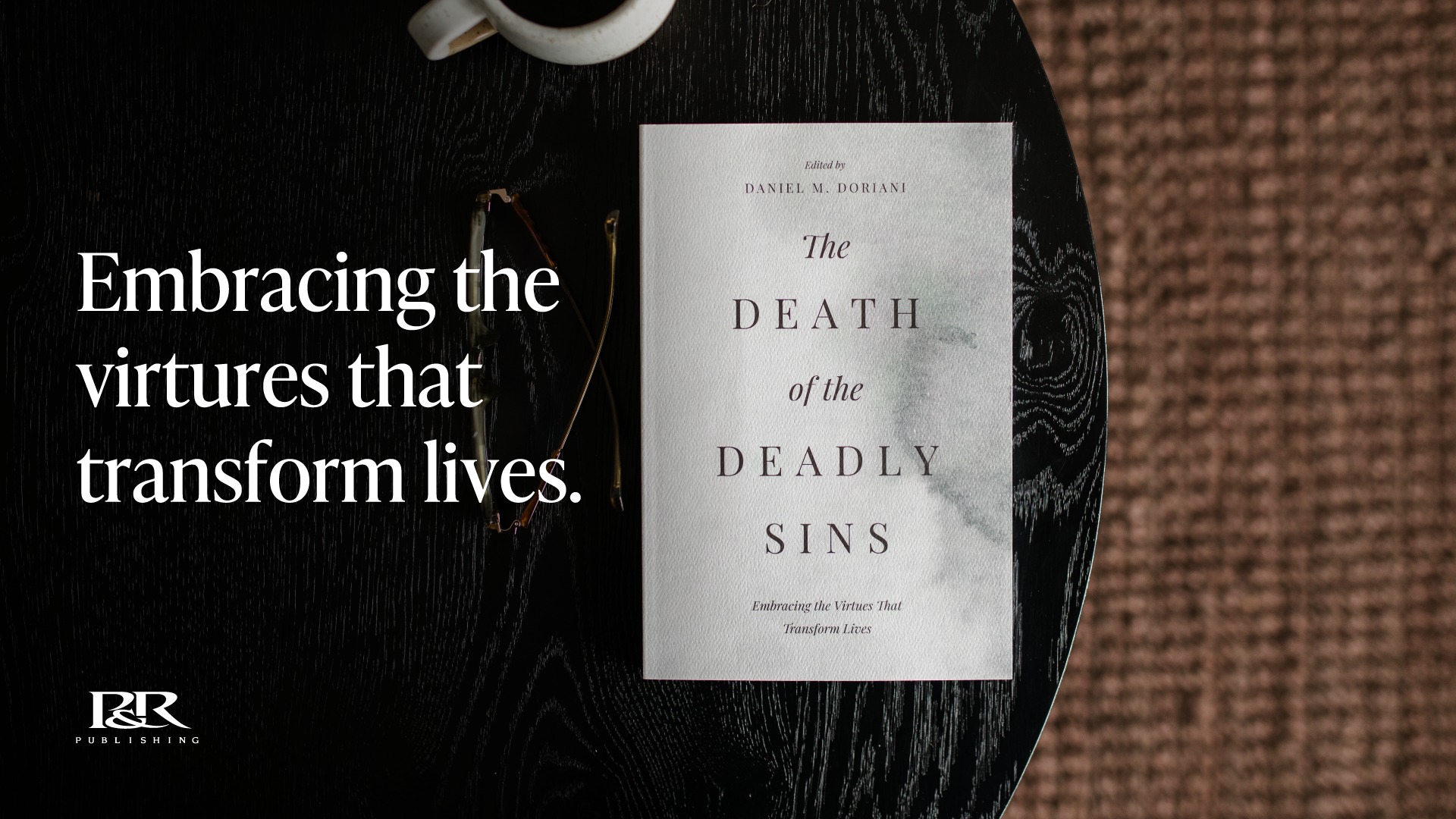 God’s character is the essence of virtue. The heart of virtue is to know the Lord and to become like him, as a child resembles her father. That is the goal, privilege, and destiny of the redeemed. #Sponsored]]>
God’s character is the essence of virtue. The heart of virtue is to know the Lord and to become like him, as a child resembles her father. That is the goal, privilege, and destiny of the redeemed. #Sponsored]]>
This week, the blog is sponsored by P &R Publishing.
Virtue has fallen on hard times. The West has apparently abandoned the idea that leaders ought to be men and women of character. In the past, leaders labored to control their appetites and impulses. Today, many extol men and women who have the resources and boldness to indulge every desire and unleash every impulse.
One day in 2023, the New York Times published two articles that invited readers to abandon the quest to be good. The first article, “I Don’t Need to Be a ‘Good Person,’” urged readers to “listen to your worst instincts and darkest desires.” In the second, “The Virtues of Being Bad,” sixteen writers confessed a range of offenses. At first, it was trivia like eating junk food. More ominously, they lie to strangers, practice shoplifting; and sleep with friends at random.
Judging by widely read advice columns, most Americans live by a code that has just a few rules: Don’t break promises you make to your friends, don’t cheat on your partner (unless you agree on polyamory), and don’t exploit power differentials. People generally do what it takes to be happy—and to help family and friends find happiness, too. So they follow their heart, they cut off people who aren’t “life-giving,” and they seek authenticity.
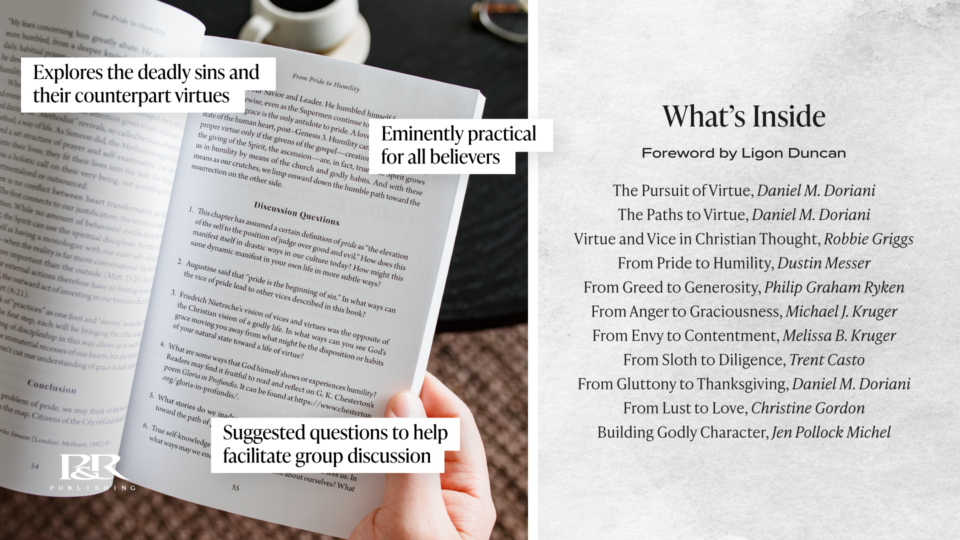
Christians have doubts about virtue, too. Some notice that the Bible speaks of God’s law hundreds of times and barely mentions virtue. The center of Christian morals is “submission to demands. . . . God calls and man obeys.” If that is true, then who needs virtue? All we need is a disposition to obey the law.
Martin Luther also criticized virtue, saying that the journey of the redeemed is not from vice to virtue, but “from virtue to the grace of Christ.” Luther stated that the great enemy of the faith is not the “godless sinner” but the “righteous man” who dwells on his progress and swells with pride.
Indeed, there is a kind of virtue that leads away from Jesus. The Pharisees suffered from it, as we see in Matthew 15:1–20. Clearly, it is time to define true virtue and to make a case for it.
God’s character is the essence of virtue. The heart of virtue is to know the Lord and to become like him, as a child resembles her father. That is the goal, privilege, and destiny of the redeemed. Romans 8:29 informs us that those whom God “foreknew he also predestined to be conformed to the image of his Son.” Believers should gradually resemble Jesus more and more.
To be like Jesus is both our destiny and God’s command. Paul told the Ephesians that they should imitate God: “Be kind to one another, tender-hearted, forgiving one another, as God in Christ forgave you. Therefore be imitators of God, as beloved children. And walk in love, as Christ loved us and gave himself up for us” (Eph. 4:32–5:2). Philippians 2 tells disciples to empty themselves of selfish ambition and self-interest because Jesus did so. From his incarnation to his crucifixion, Jesus “emptied himself” (Phil. 2:7) and humbled himself. We should do the same. In a word, a virtuous person is a lot like Jesus.

 We stood together on the crest of a hill, a gentle breeze rustling the meadow around our feet. The fields ran gently downward until they met a creek that gurgled happily in its course. A few years prior, an acorn had somehow made its way to the highest point of this hill, carelessly dropped there by a bird. Rains had germinated it, then roots had formed and pushed down into the soil. Soon a stem grew upward, then branches emerged, and then a few tender leaves. It was now an oak tree in miniature that rose just inches higher than the grasses around. He gestured toward that tree and said, “When God plants an acorn, he means an oak.” When God’s providence arranges for an acorn to come to rest on the crest of a hill, he means for it to burst into life and become a mighty tree. Within that half-ounce acorn lies the potential of a 30-ton oak. Given time and natural processes, it will become mature and mighty. When God plants an acorn, he means an oak. When God plants a seed, he means for it to spring up to a harvest of a hundredfold. It is always God’s way that what appears to be little is meant to become much, that what appears to be weak is meant to become strong, that what appears to be doubtful is meant to prove his power. For it is, indeed, his power that works to multiply, his power that works to make such growth…]]>
We stood together on the crest of a hill, a gentle breeze rustling the meadow around our feet. The fields ran gently downward until they met a creek that gurgled happily in its course. A few years prior, an acorn had somehow made its way to the highest point of this hill, carelessly dropped there by a bird. Rains had germinated it, then roots had formed and pushed down into the soil. Soon a stem grew upward, then branches emerged, and then a few tender leaves. It was now an oak tree in miniature that rose just inches higher than the grasses around. He gestured toward that tree and said, “When God plants an acorn, he means an oak.” When God’s providence arranges for an acorn to come to rest on the crest of a hill, he means for it to burst into life and become a mighty tree. Within that half-ounce acorn lies the potential of a 30-ton oak. Given time and natural processes, it will become mature and mighty. When God plants an acorn, he means an oak. When God plants a seed, he means for it to spring up to a harvest of a hundredfold. It is always God’s way that what appears to be little is meant to become much, that what appears to be weak is meant to become strong, that what appears to be doubtful is meant to prove his power. For it is, indeed, his power that works to multiply, his power that works to make such growth…]]>
We stood together on the crest of a hill, a gentle breeze rustling the meadow around our feet. The fields ran gently downward until they met a creek that gurgled happily in its course. A few years prior, an acorn had somehow made its way to the highest point of this hill, carelessly dropped there by a bird. Rains had germinated it, then roots had formed and pushed down into the soil. Soon a stem grew upward, then branches emerged, and then a few tender leaves. It was now an oak tree in miniature that rose just inches higher than the grasses around. He gestured toward that tree and said, “When God plants an acorn, he means an oak.1”
When God’s providence arranges for an acorn to come to rest on the crest of a hill, he means for it to burst into life and become a mighty tree. Within that half-ounce acorn lies the potential of a 30-ton oak. Given time and natural processes, it will become mature and mighty.
When God plants an acorn, he means an oak. When God plants a seed, he means for it to spring up to a harvest of a hundredfold. It is always God’s way that what appears to be little is meant to become much, that what appears to be weak is meant to become strong, that what appears to be doubtful is meant to prove his power. For it is, indeed, his power that works to multiply, his power that works to make such growth possible.
There are implications for our lives, of course. When God grants us the gift of salvation, he means for us to share our faith with friends, family members, and complete strangers until an entire church has sprung up and an entire community has been transformed. What begins small is meant to become big.
When God grants a gift of two talents, he means for it to produce four or eight or twelve. He gifts each one of us in different ways and expects we will make careful and deliberate use of our gifts to amplify their reach and multiply their power. What appears to be weak is soon proven to be strong.
When God grants us small seeds of character, he means for it to bloom into godliness that extends over our entire lives. We are not meant to remain content with a small measure of joy but to live lives bursting with it. We are not meant to remain content with merely tolerating others, but to love them—even (especially!) those who hate us. We are not meant to permit the mere beginnings of self-control, but to live lives of strong moral discipline, to be like cities that rest safe behind impregnable walls.
God neither asks nor expects us to do this in our strength or by our own power. Rather, where God sets the expectation, he also provides the power. Our task is to take hold of that power—to believe the gospel, to apply the gospel, and to see the gospel burst forth with divine power. Our task is to be obedient, to be faithful, and to see our little multiplied into far more than we could ask or even imagine.
- De Witt Talmage ↩︎
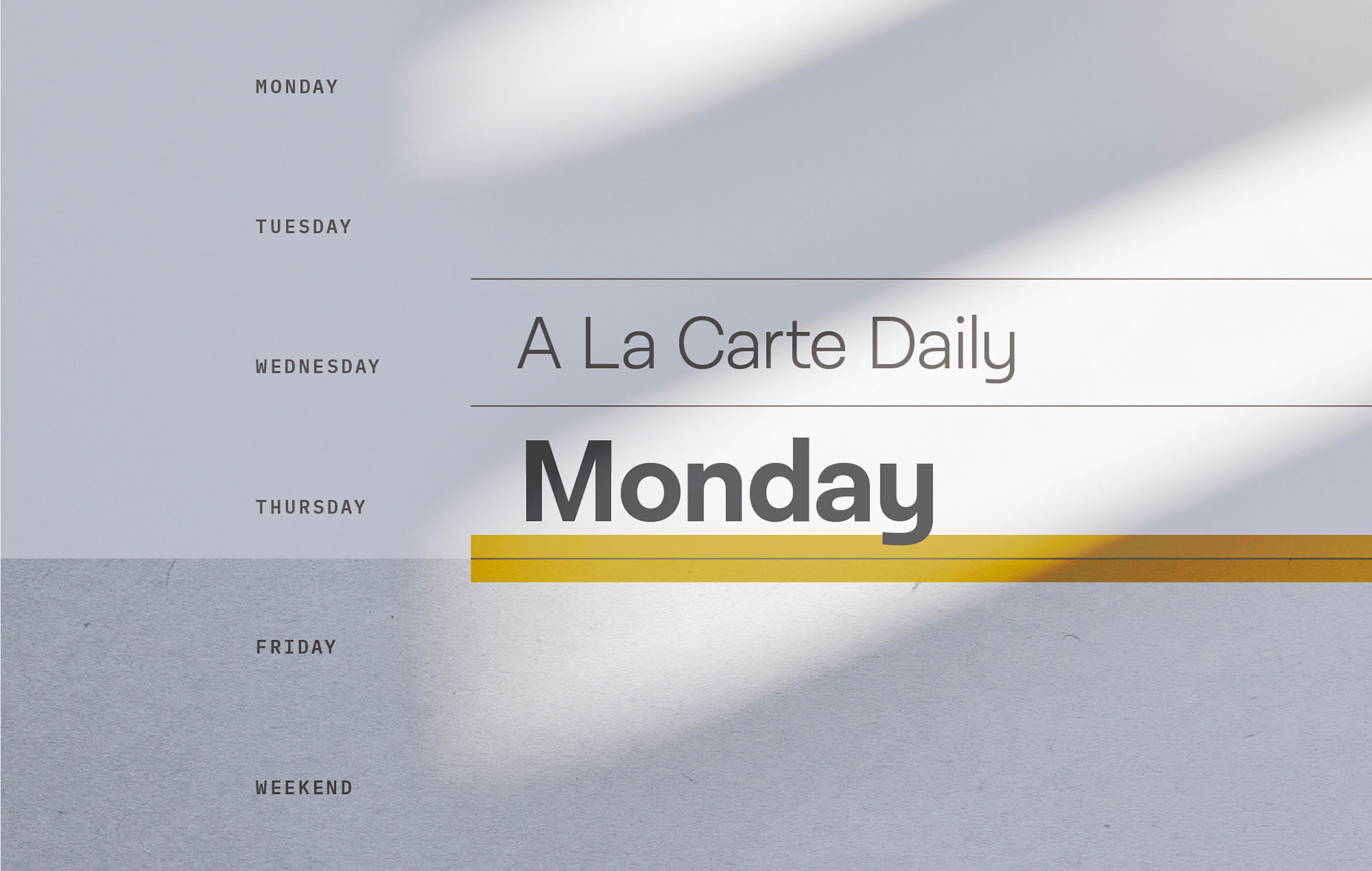 A La Carte: Protestantism's Catholic converts / How healthy is your pursuit of health? / God's special calling on your life / Considering a Christian university? / Testing the teachings of Catholicism / Kindle deals / and more.]]>
A La Carte: Protestantism's Catholic converts / How healthy is your pursuit of health? / God's special calling on your life / Considering a Christian university? / Testing the teachings of Catholicism / Kindle deals / and more.]]>
Good morning. Grace and peace to you.
Today’s Kindle deals include a couple of my favorite J.I. Packer titles (e.g. Finishing Our Course with Joy). Also, we are coming to the last few days of Intervarsity Press’ sale on all of their ebooks. If you haven’t yet done so, be sure to at least look at their amazing commentary selection.
(Yesterday on the blog: New and Notable Christian Books for April 2025)
Protestantism’s Conservative Catholic Converts
Carl Trueman considers some of the reasons that Protestants convert to Catholicism. “While I can’t speak to the true intentions of all converts, my suspicion is that much of the broader interest among intellectuals in Christianity, of which these Protestant converts to Rome are a small part, may prove to be more of a cultural or political phenomenon than a truly theological one. The real test will be the dogmatic one: will these intellectuals embrace not just the cultural heritage of Christianity but also its dogmas and its practices?”
A Short Prayer for Reading the Bible
This is a helpful short prayer for reading the Bible.
God’s Special Calling on Your Life
Does God have a special calling on your life? If so, how could you know?
How Healthy Is Your Pursuit of Health?
“If we do not want to overemphasize (or ignore) the pursuit of health, then we would do well to know the purpose for which we take care of our bodies at all. What is the ‘some value’ Paul speaks of in 1 Timothy 4:8? We might answer in several ways, but perhaps the greatest value of physical training lies here: As we train our bodies rightly, we train ultimately for godliness.”
Considering a Christian University? Investigate 2 Things.
If you are considering a Christian university, or perhaps helping your children do so, here are two important things to investigate. “No institution is perfect. At some point, every parent will be frustrated or disappointed by something within the college. But parents can and should expect schools to be honest about both our convictions and our aims. Here’s the good news: Families have no small number of excellent choices for this kind of experience.”
Testing the Teachings of Roman Catholicism
Paul Tautges shares a short and helpful guide meant to test the teachings of Roman Catholicism.
Flashback: Whatever Is Not Christ
And as marble needs to be carved to bring forth the image within, we oftentimes need to endure sorrows to bring forth the character of Christ.
]]>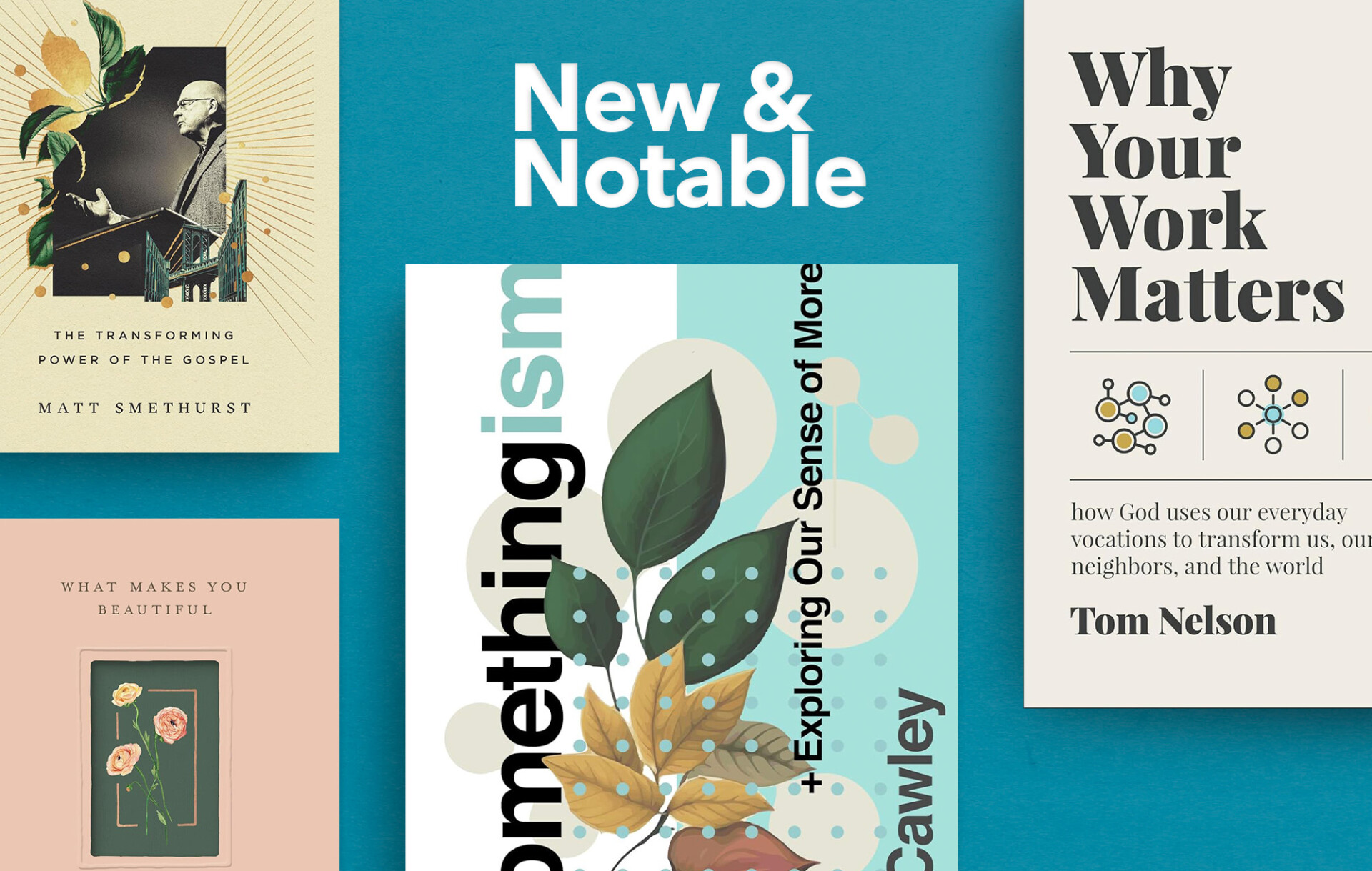 It is surprisingly difficult to find a list of Christian books that have been released in any given month—especially if you want that list to be filtered by books released through particular publishers. That’s one of the reasons why I close each month by coming up with my list of New and Notable books. I comb through what I’ve received in the past month (and scour all the publishers’ websites) to come up with a list of titles that are interesting to me—and may just be interesting to you. Here are my picks for April. In each case, I’ve included the publisher’s description.]]>
It is surprisingly difficult to find a list of Christian books that have been released in any given month—especially if you want that list to be filtered by books released through particular publishers. That’s one of the reasons why I close each month by coming up with my list of New and Notable books. I comb through what I’ve received in the past month (and scour all the publishers’ websites) to come up with a list of titles that are interesting to me—and may just be interesting to you. Here are my picks for April. In each case, I’ve included the publisher’s description.]]>
It is surprisingly difficult to find a list of Christian books that have been released in any given month—especially if you want that list to be filtered by books released through particular publishers. That’s one of the reasons why I close each month by coming up with my list of New and Notable books. I comb through what I’ve received in the past month (and scour all the publishers’ websites) to come up with a list of titles that are interesting to me—and may just be interesting to you. Here are my picks for April. In each case, I’ve included the publisher’s description.
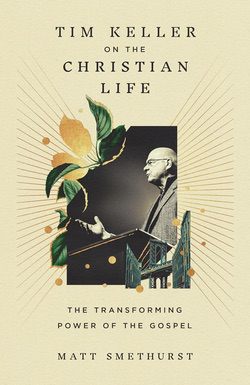
Tim Keller on the Christian Life: The Transforming Power of the Gospel by Matt Smethurst. “Pastor and author Timothy Keller (1950–2023) built a lasting legacy in Christian ministry, planting Redeemer Presbyterian Church and cofounding the Gospel Coalition. With sharp biblical insight that has shaped countless church leaders, along with counsel on the Christian life that has stirred and strengthened audiences worldwide, Keller’s teaching promises to influence generations to come. Synthesizing Keller’s work topic by topic, each chapter of this book highlights a key aspect of the Christian life—covering his views on prayer, suffering, friendship, vocation, intimacy with God, and more. Written by pastor Matt Smethurst, Tim Keller on the Christian Life draws from Keller’s nearly 50 years of sermons, conference messages, and books to share practical theological insight that will galvanize leaders and laypeople alike.” (Buy it at Amazon or Westminster Books)

What Makes You Beautiful: 20 Daily Devotions for Girls by Kristen Wetherell. “In a society that values physical beauty, worldly achievements, and popularity, many young people suffer under the weight of the world’s expectations. The pressure to conform is especially intense for young girls who long to be accepted. Thankfully, the Creator of the world doesn’t judge our beauty through these impossible ideals. Instead, he focuses on the character of our hearts—our love for Christ, our fear of him, and our continual transformation by his grace. Written for girls ages 9–12, this devotional traces the theme of beauty to help young readers know and love the one who created them in his likeness. Each reading includes a portion of a poem, a related Bible verse, a concise devotion, and a brief prayer. As young readers marvel at the beauty of God, they will be transformed, learning that the more they appreciate God’s beauty, the more beautiful they will become.” (Buy it at Amazon or Westminster Books)
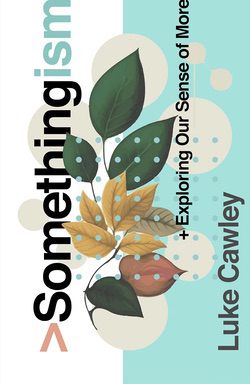
Somethingism: Exploring Our Sense of More by Luke Cawley. “Most of us have a sense that there may be more out there than only what we can see or touch—not necessarily a God but something. You could call this intuition ‘somethingism.’ Some who believe this would also say they are ‘spiritual but not religious.’ This book offers those with this sense of belief in ‘something’ the opportunity to begin to explore faith. Imaginative and thoughtful chapters consider the possibility that the sense of something out there correlates to a someone who not only exists but can be encountered and known in the person of Jesus. A fresh approach to evangelism that particularly resonates with younger generations, this book is great to read individually, with a friend, or over four sessions in a group. There are questions to fuel reflection and discussion.” (Buy it at Amazon)

Every Hour I Need You: 30 Meditations for Moms on the Character of God by Katie Faris. From early mornings to sleepless nights and busy activity schedules in between, motherhood is difficult, sanctifying work. Confronted with the struggles and unknowns of raising children, women are reminded daily of their need for help, and from this awareness comes the heart cry of every mother: a longing to be known and loved through it all. Having raised 5 children between the ages of 7 and 18, Katie Faris understands the challenges of parenting and the importance of remembering God’s provision and providence. In Every Hour I Need You, she walks with women, helping them contemplate God’s unchanging character and discover how his purposes are at work, even in the everyday moments of motherhood. These 30 brief devotions focus on distinct characteristics of God—including his sovereignty, generosity, and patience—inviting women to know him more through his word, experience deeper spiritual affections and stronger faith, and serve Christ through the care of their families at home.” (Buy it at Amazon or Westminster Books)
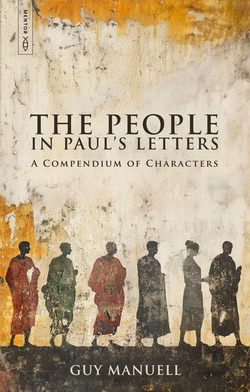
The People in Paul’s Letters: A Compendium of Characters by Guy Manuell. “Of the twenty–seven books of the New Testament, thirteen are letters written by the apostle Paul to early Christian communities and individuals. These churches were working out the reality of living for Christ and His Kingdom in a world antagonistic to the gospel. Many of the individuals in these congregations were mentioned by name in Paul’s letters, and there is much to be learned from them. We can learn as much by considering Paul’s interactions with people as his directions about Christian thought and behaviour. Although separated by twenty centuries, many of the issues we face today relate closely to matters they encountered. Guy Manuell has thoroughly researched the people mentioned in Paul’s letters. Each person has an individual entry, starting with the verses in which they are found, and giving a full explanation of who they were and their relationship to Paul.” (Buy it at Amazon or Westminster Books)
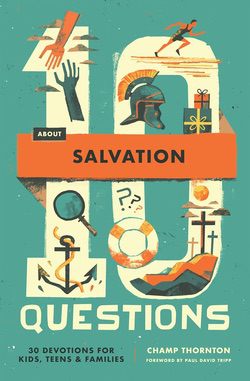
10 Questions about Salvation: 30 Devotions for Kids, Teens, and Families by Champ Thornton. “Everyone has questions about religion, but when you’re young, finding the answers can be difficult. Some books are too complex and others don’t dive deeply enough into the faith topics that matter most to kids and teens. So where can young readers go to grow in their understanding of God and his word? The 10 Questions series invites children ages 8–14 to investigate spiritual questions and provides reliable theological and practical answers on their level. The first book, 10 Questions about Salvation, helps readers find joy, security, and hope in God’s gracious love. Each 10 Questions book presents one main topic, poses 10 vital questions on the topic, and answers each question through 3 short devotions. Readers can work through the 30 readings in any order they choose. Written to be read alone or aloud with family, 10 Questions about Salvation is the perfect way to start or end each day reflecting on the things of God.” (Buy it at Amazon or Westminster Books)
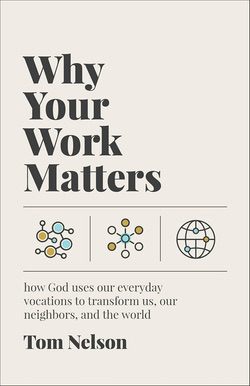
Why Your Work Matters: How God Uses Our Everyday Vocations to Transform Us, Our Neighbors, and the World by Tom Nelson. “Americans spend a majority of their waking hours working, whether paid or unpaid. Due to rapidly advancing technology, hybrid work, shifts in the economy, and more, the working world has become an increasingly complex place to navigate. In this newly expanded and updated version of his 2011 book, Work Matters, author and pastor Tom Nelson wrestles with the latest trends and dynamics of work, including remote work, work-life balance, technology, the meaning of Sabbath, and working for the common good. Nelson explores the grand story of work in the Bible, revealing that all work matters in God’s economy and that Christians can love and serve their neighbors no matter what they do for their daily vocation. He helps readers discover that their work matters deeply–not just now but for eternity. Why Your Work Matters contains 70% new material and has been updated throughout. It includes six new chapters and a new introduction.” (Buy it at Amazon)

Archaeology and the Ministry of Paul: A Visual Guide by David A. deSilva. “A fundamental principle of biblical interpretation is the importance of context–historical, literary, and canonical. But an often-neglected source of context for understanding Scripture is the field of archaeology. The physical and cultural world we inhabit affects us deeply, and that was no less true for the original writers and readers of Scripture. Archaeology provides insights into important questions like, What did these believers see day to day? What messages did they receive from their environment? What social practices influenced them? In this first of three planned volumes, New Testament scholar David deSilva uses archaeological findings to explore places where the apostle Paul ministered and his audiences lived. This visually compelling and beautifully designed book contains more than 250 full-color photographs of sites and artifacts. The author focuses on the fruits of archaeology in regard to the sites associated with Paul’s ministry in Acts and in Paul’s own writings. This book helps readers understand the real-life situations Paul addressed.” (Buy it at Amazon)
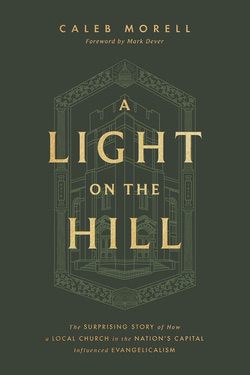
A Light on the Hill: The Surprising Story of How a Local Church in the Nation’s Capital Influenced Evangelicalism by Caleb Morell. “Capitol Hill Baptist Church, located just blocks away from the center of American power, has a rich 150-year history. Its members have participated in significant world events, advocated for religious freedoms, and spoken out against the moral failings of the times. There’s no doubt this church has had a unique impact on evangelicalism from a significant location. But these lively characters and their unique experiences only tell part of this engaging narrative. Through real-life stories, A Light on the Hill reveals how God works through church bodies and remains faithful during times of uncertainty. Exploring themes such as pastoral ministry, faithfulness, courage, racial reconciliation, church and politics, and more, this book will help readers see the long-term effects of faithful church ministries. Ultimately they will be encouraged to invest in a local church and preserve the gospel for the next generation.” (Buy it at Amazon or Westminster Books)
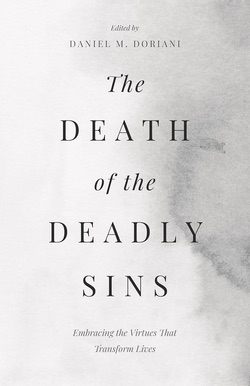
The Death of the Deadly Sins: Embracing the Virtues That Transform Lives, edited by Daniel M. Doriani. “Pride. Greed. Anger. Envy. Sloth. Gluttony. These sins have endured since the beginning, but they do not need to endure in a believer’s life. This book explores their counterpoint virtues—showing how we can drive out vice with Christlikeness as we learn to increasingly desire, discern, and practice what is good. Daniel Doriani, Michael Kruger, Jen Pollock Michel, and others explore biblical teaching on godly character and the practices and means of grace that promote virtue.” (Buy it at Amazon or Westminster Books)
]]> A La Carte: Every pinch of pain has purpose / China closed Christian bookstores / Watch for the thing after the thing / For everything there is a time / Showers of blessing / What Pope Francis can teach us about preaching / and more.]]>
A La Carte: Every pinch of pain has purpose / China closed Christian bookstores / Watch for the thing after the thing / For everything there is a time / Showers of blessing / What Pope Francis can teach us about preaching / and more.]]>
I’m grateful to Moody Publishers for sponsoring the blog this week to tell you about Platforms to Pillars, a book meant to address the notion of platform. “Sayers takes a deep dive into the influence and allure of digital platforms on individuals and society, and he invites readers to envision a legacy that lives beyond themselves.”
Today’s Kindle deals are headlined by Carl Trueman’s newest book To Change All Worlds which I believe is on sale for the first time.
Yesterday I recommended Kristen Wetherell’s new book What Makes You Beautiful. I noticed that Westminster Books just put it on sale at a hefty discount, so now’s a good time to get a copy.
China Closed Christian Bookstores. Digital Publishing Grew in the Vacuum.
I found this article from CT really encouraging. It tells how Christian publishers in China are publishing and distributing really good books despite government restrictions. (You may need a free account to read the article.)
Every Pinch of Pain Has Purpose
John Piper explains how in God’s world every pinch of pain has purpose. “God sees to it that the troubles we have, whether persecution or some other heaviness of heart, are designed, not by Satan, not by wicked men, but by God for our holiness, for our fruitful righteousness, for our peace, for our strengthened faith, for our greater reliance upon God, and thus for our joy.”
Watch for the Thing After the Thing
Yes, this is wise counsel—to watch for the thing after the thing.
For Everything There Is a Time
Elyse Fitzpatrick: “It seems to me that God loves change. In all His creation there isn’t anything that stays precisely static. In fact, even atoms are subject to variation and seek disorder rather than order. What in all creation doesn’t change? Only God, the one who stands over the creation.”
What Pope Francis Can Teach Us About Preaching
Shortly before he died, Pope Francis told priests to preach for no more than 10 minutes. Geoff Gertzen draws a lesson from this for Protestant preachers.
Showers of Blessing
“Take a moment to reflect on answered prayers from your past or even blessings you never requested, but he gave them to you anyway. Now, think about your present condition. You might be facing manifold heaviness—the Lord who cared for you in the past still loves you today. Are you looking for the blessings, or have you taken your eyes off Jesus and only focused on the waves?”
Flashback: The Problem with Falling in Love
If love is something that just happens to us it is also something that can just un-happen to us. If it is the action of an outside force, that same force can depart or a competing force can displace it. Then we can blame these forces, as if love’s rising is the reason we began to love and its waning is the reason we ceased.
]]> Free Stuff Fridays: Book Library! #Sponsored]]>
Free Stuff Fridays: Book Library! #Sponsored]]>
This week, the blog and giveaway are sponsored by Moody Publishers.
Attention Bible readers, thoughtful believers, and lifelong learners of the Word!
Moody Publishers is giving away a powerful bundle of Bible study resources designed to strengthen your faith, deepen your understanding of Scripture, and equip you for real-life discipleship.
One winner will receive an incredible library featuring:
- Stress Less: 9 Habits from the Bible and Brain Science to Build Resilience and Reduce Anxiety – Biblically sound and research-informed
- Killing Sin: Conquer the One Thing That Is Defeating You
- Fake Christianity: 10 Traps of an Inauthentic Faith (and How to Avoid Them)
- Drive Through the Bible – an easy-to-follow guide to the big picture of God’s Word
- This Light of Mine: Living Like Jesus in a Non-Jesus World
- The Moody Bible Atlas
Whether you’re leading a study, discipling others, or growing in your own walk with God, this giveaway is for you.
Only one winner. Enter before July 31st for your chance to win!
]]> I have often thought of a conversation that took place when my girls were little. Abby was perhaps 5 or 6 at the time and Michaela just working her way through the “terrible twos” (which for our kids always happened when they were three or four). A stranger saw me interacting with them one day and said, “Just wait until they are teenagers!” It sounded foreboding. It sounded like he was predicting dire days ahead.]]>
I have often thought of a conversation that took place when my girls were little. Abby was perhaps 5 or 6 at the time and Michaela just working her way through the “terrible twos” (which for our kids always happened when they were three or four). A stranger saw me interacting with them one day and said, “Just wait until they are teenagers!” It sounded foreboding. It sounded like he was predicting dire days ahead.]]>
I have often thought of a conversation that took place when my girls were little. Abby was perhaps 5 or 6 at the time and Michaela just working her way through the “terrible twos” (which for our kids always happened when they were three or four). A stranger saw me interacting with them one day and said, “Just wait until they are teenagers!” It sounded foreboding. It sounded like he was predicting dire days ahead.
I spoke to a couple of friends after that, both of whom were a few years ahead of me in parenting. They said something that stuck with me: Much more challenging than the teenage years are the preteen years. It’s when they are 10 or 12 that they—and you—are likely to have deeper struggles. And, as it happens, they were right. The teenage years were a delight, but the preteen years were much tougher.
While I have no experience of being a preteen girl, I have plenty of experience observing and living up close-up with them—three sisters, two daughters, eight nieces, and so on. It has seemed to me that there are few things more difficult than being a girl who is between childhood and adulthood, a girl who is in those formative preteen, tween, or early teenage years.
This is exactly the demographic Kristin Wetherell means to reach in her new book What Makes You Beautiful. Written as a series of 20 daily devotions, she specifically addresses the matter of beauty. If this matter of beauty has always been pressing for young girls, it must be especially so in a world of social media where each person is expected to present a curated, filtered, Instagrammable version of themselves and their lives. If it has always been difficult to separate visible beauty from the hidden beauty of the heart, how much more so today?
Wetherell begins the book with a poem, then returns to a portion of it in each chapter. She slowly helps girls understand that where the world around them will pressure them to conform to worldly expectations, God means for them to be increasingly transformed to his image. God delights in them in such a way that his foremost concern is not how they look, what they accomplish, or how popular they become, but their heart, their character, and their conformity to his will. This is a crucial message girls need to hear, believe, and internalize in these formative years.
What Makes You Beautiful is beautifully created with an inviting cover, a feminine color palette, and artistic imagery. It is written in an appropriate tone that is not quite grown up, but also not childish. It includes pages for readers to take notes and suggestions for future reading in both the Bible and other Christian books.
While my girls are now well past those preteen years, and therefore beyond this book, it is one I would have eagerly given to them had it existed when they were at that age. It is one that I’m certain would have ministered to them and blessed them. Thus, I’m confident that if you have daughters who are heading into those formative years, it will serve them well.
]]> A La Carte: John Piper and ChatGPT / Who's praying for your wife and kids? / When your dreams include sin / Are you called to ministry? / Our feet shall tread this place again / and more.]]>
A La Carte: John Piper and ChatGPT / Who's praying for your wife and kids? / When your dreams include sin / Are you called to ministry? / Our feet shall tread this place again / and more.]]>
May the Lord be with you and bless you today.
Today’s Kindle deals include another extensive list. Heading it up are Jackie Hill Perry’s memoir Gay Girl, Good God and a new biography of John Bunyan.
John Piper Asks ChatGPT to Write a Prayer (Video)
This is just a short clip from the TGC conference, but I think it’s helpful. Piper shares a prayer ChatGPT wrote and explains why it would be appalling to pray it.
Man of God, Who’s Praying for Your Wife and Kids?
Trevin asks a good question here. A great gift you can give your family is the knowledge that they have been prayed for that day!
What Will Jesus Say to Pope Francis on Judgment Day?
Jordan Standridge, a Protestant pastor in Italy, brings a unique perspective to such a question. “I was hanging out with some Italian Believers, in Rome, when the news came out. One of the Major Basilica’s of Rome, ‘Saint Paul outside the City’ was in the background as we were discussing the death of Pope Francis together. … All these people have been impacted greatly by the Catholic Church. Perhaps no one on earth is more qualified to speak on the vicar of Rome, than a born-again Christian in Rome.”
Our Feet Shall Tread This Place Again
“This life is just getting the place ready, getting things in order for moving in, as it were. This confidence ought to keep us from dangers [already mentioned], and instead drive us to invest deeply in future generations, while living temporarily and taking nothing for ourselves… for now.”
What Should You Do When Your Dreams Include Sin?
Kevin offers counsel to Christians who feel guilty about their dreams. (I might just add that it would be worthwhile to honestly consider whether you have been fueling your dreams through sinful actions or fantasies, and if so, to repent of that.)
How Do You Know If You’re Called to Ministry?
This question comes up all the time and Jeremy’s answer is a good one.
Flashback: The Two Kinds of Conversation You Need To Have With Your Children
As you reduce the intimacy of your posture you can increase the intimacy of your conversation. You do this out of kindness to your child, knowing that it is easier for him or her to express or confess certain matters when not being forced to stare into the eyes of mom or dad.
]]> A La Carte: He cares for us / Will the pope to go heaven? / An easy Christian faith / The good we cannot see / Chickens, elephants, and freedom / When we skip the prophets / Kindle and book deals / and more.]]>
A La Carte: He cares for us / Will the pope to go heaven? / An easy Christian faith / The good we cannot see / Chickens, elephants, and freedom / When we skip the prophets / Kindle and book deals / and more.]]>
Today’s Kindle deals include Brave by Faith by Alistair Begg, The Art of Rest by Adam Mabry, and The Pastor as Leader by John Currie, all for just a couple of dollars each. And that’s just the start! Also, note that the Kindle Colorsoft is on sale right now (probably for the first time since it’s so new).
Amazon’s big book sale continues. I added all kinds of new deals yesterday.
He Cares for Us
Paul Levy writes about being cared for and being a caregiver. “The truth of God’s care is one that we need to work hard to appropriate to ourselves. You are not a burden to God; He cares for you. Allowing this to sink into the very depths of our being will transform us. Our natural tendency since the garden of Eden is to think that God doesn’t care.”
Will the Pope Go to Heaven? (Video)
I appreciated this discussion with Leonardo Di Chirico and Rachel Ciano as they discuss what Pope Francis taught and believed.
The Ever-Present Search for an Easy Christian Faith
“My hunch is that many churchgoers quietly enjoy the benefits of an easy Christianity—a version that dispenses with commands, requires little effort in obedience, and celebrates a cross we may wear but never bear. We want the gift of the cross without the call of the cross.”
Chickens, Elephants, and the Illusion of Freedom
With a title like that you know you need to give it a look!
The Good We Cannot See
Kirsten takes some time to ponder the good we cannot see–the good God promises in our sorrow that we cannot see in the moment. “I know one day I will understand how this suffering, this loss, this confusion, this pain was worth it. It’s bringing Jesus more glory in ways I cannot comprehend. God has worked it for good in ways I cannot see. I don’t understand how this works right now.”
What We Miss When We Skip the Prophets
This article is meant to help you appreciate the prophets and not just skip past them when you read, preach, or teach the Bible.
Flashback: Optimistic Denominationalism
…today, rather than focusing on matters of disagreement, why not take the optimistic approach and appreciate what each emphasizes? Both do what they do to honor the Lord and celebrate his grace.
]]> Francis’ time as pope has come to an end and already many are attempting to define his legacy. Was he a reformer? Was he a progressive? Was he an apostate? Perspectives are wildly varied with some honoring him as the greatest pope of modern times and some dishonoring him as a disgrace to the office.]]>
Francis’ time as pope has come to an end and already many are attempting to define his legacy. Was he a reformer? Was he a progressive? Was he an apostate? Perspectives are wildly varied with some honoring him as the greatest pope of modern times and some dishonoring him as a disgrace to the office.]]>
Francis’ time as pope has come to an end and already many are attempting to define his legacy. Was he a reformer? Was he a progressive? Was he an apostate? Perspectives are wildly varied with some honoring him as the greatest pope of modern times and some dishonoring him as a disgrace to the office.
As I read various columns, several words seem to come up repeatedly, though none so often as humility.1 From his earliest days he was described as “the humble pope.”2 It was said to be humility that compelled him to take the name “Francis” and evidence of his humility that he asked the faithful to pray for him rather than the other way around. He declined some of the more ostentatious benefits of the papacy and chose to live a simpler and less pretentious life. In these ways and many others, he seemed to show exemplary humility.
Yet before we concur with such an assessment, we ought to consider this: What is humility? Humility, in the words of Wayne Mack, “consists in an attitude wherein we recognize our own insignificance and unworthiness before God and attribute to Him the supreme honor, praise, prerogatives, rights, privileges, worship, devotion, authority, submission, and obedience that He alone deserves. It also involves a natural, habitual tendency to think and behave in a manner that appropriately expresses this attitude.” Mack gets straight to the heart of humility when he shows that it is expressed before God before it is expressed before man. If we are proud before God, we cannot be humble before man.
Like any of us, Pope Francis could only be humble—truly humble—if he first attributed to God “the supreme honor, praise, prerogatives, rights, privileges, worship, devotion, authority, submission, and obedience that He alone deserves.” Yet Roman Catholic doctrine, and especially doctrine related to the papacy, steals from the honor, rights, prerogatives, and authority of Jesus Christ and attributes them instead to the pope. By definition and by Catholic dogma, Francis was no humble pope. He couldn’t be unless he rejected the office of pope and the doctrine of the Catholic Church.
The Vicar of Christ
According to the Catechism of the Roman Catholic Church, the most fundamental claim about the pope is that he is the Vicar of Christ. “For the Roman Pontiff, by reason of his office as Vicar of Christ, and as pastor of the entire Church has full, supreme and universal power over the whole Church, a power which he can always exercise unhindered.” A vicar is a substitute (as we see in the word vicarious), which means, according to James White, that the pope “functions in the place of Christ as the earthly head of the Church as Christ is the heavenly leader.” The pope claims to be Christ’s representative on earth, left here to rule the Church. Yet this claim demeans the role of the Holy Spirit, for it is the Spirit to whom Christ has entrusted his church. As White says, “The truth of the matter is that the Holy Spirit’s role has been taken over by the hierarchy of the Church, and the individual Christian is subject to that authority as a matter of his eternal salvation.”
Pope Francis proclaimed that he was Christ’s Vicar on earth and that he, like Christ, had supreme and unhindered authority on earth. Yet for a pope to be truly humble, he would have to revoke his blasphemous claim to supremacy and instead direct people to the care of the Holy Spirit.
Infallibility
The Roman Catholic Church attributes infallibility, the impossibility of error, to the pope “when, in the exercise of his office as shepherd and teacher of all Christians, in virtue of his supreme apostolic authority, he defines a doctrine concerning faith or morals to be held by the whole Church.” Essentially, this doctrine teaches that God has given humanity a spokesman on earth who can authoritatively and infallibly address the most difficult questions related to life and doctrine. While the specifics of papal infallibility are complex and debated, in any form it infringes upon the authority of the Bible. Again, James White explains: “Papal infallibility is really the capstone of the entire denial of sola scriptura. We are told we can find an infallible guide in the person of the pope, one who can speak for the Church without question on matters of faith and morals. It is impossible not to point out the simple fact that in this doctrine one finds the final step in a process that began with the first addition of a human tradition to the Scriptures: the process of replacing the Holy Spirit of God with a structure of man’s making.” The claim of infallibility simply cannot be reconciled with the claim of humility.
Had Francis actually been a humble pope, he would have declared his own fallibility and placed himself under the authority of Scripture. He would also have called upon the church to examine in the light of God’s Word every word he spoke and every word his predecessors had spoken before him.
The Upholder of Doctrine
As head of the Roman Catholic Church, Pope Francis was the supreme upholder of its doctrine. Yet this doctrine is fundamentally opposed to the gospel of grace alone by faith alone through Christ alone. The unbiblical doctrine that necessitated the Protestant Reformation has been affirmed and re-affirmed by Rome. The Catholic doctrine of justification is still one of faith plus works rather than one of faith alone. Canon 9 of the Council of Trent has never been revoked and remains the Church’s official position: “If any one saith, that by faith alone the impious is justified; in such wise as to mean, that nothing else is required to co-operate in order to the obtaining the grace of Justification, and that it is not in any way necessary, that he be prepared and disposed by the movement of his own will; let him be anathema.” This is just one of many anathemas that together claim that those who affirm justification by faith alone are placed under God’s curse and are subject to his wrath. For the duration of his time as pope, Francis was the primary proclaimer and upholder of these anathemas and did nothing to revoke them.
Had he been a truly humble pope, he would have revoked the church’s anathemas against the doctrine of justification by faith alone and instead affirmed what the Bible so clearly teaches to be true.
The Humble Pope?
We admire those who do good things, who choose poverty instead of riches, who prefer prisoners to priests. Yet we can also be easily deceived by what is merely outward. As Protestants consider the legacy of Pope Francis, we would do well to be cautious about elevating him as an example of the virtue of humility. I have shared just three of the claims of the papacy that come into sharp contrast with any such claim. We could point as well to his titles of Your Holiness, or Holy Father, or we could point to the fact that he allowed people to kiss his ring. (Would you consider your pastor humble if he demanded such titles and such rituals?) But ultimately, these are all subservient to the greatest and most blasphemous claim of Pope Francis and the Church he represents: that he is the Vicar of Christ. In the face of this claim among all the others, “Humble Pope” is an oxymoron.
- See, for example, Christianity Today’s obituary. ↩︎
- This article is largely drawn from one I wrote 12 years ago when he became pope. ↩︎
 A La Carte: How to begin a conversation with a dechurched friend / Machen was right / The truth of Christ's resurrection / When grief becomes sin / Nope to the media's ideal for a new pope / Book sale / and more.]]>
A La Carte: How to begin a conversation with a dechurched friend / Machen was right / The truth of Christ's resurrection / When grief becomes sin / Nope to the media's ideal for a new pope / Book sale / and more.]]>
Today is the beginning of Amazon’s big Book Sale. I have put together a list of deals on this page and will update it in the morning as more deals become available. So far there are already lots of good picks that cross a lot of categories.
Today’s Kindle deals include books for counselors, for moms and daughters, and for people who enjoy reading John MacArthur. There’s also a huge list of interesting general market deals.
Westminster Books has a Mother’s Day bundle that may interest you (perhaps especially since it’s only $9.99).
How to Begin a Conversation With Your Dechurched Friend
Nicholas McDonald offers some level-headed counsel for speaking to a dechurched friend. “One of the overwhelming things we ask ourselves when thinking about our dechurched friends and neighbors is simply, ‘Where do we start?'”
Bid Adieu. Machen Was Right.
Nathan writes about the sad fact that the PCUSA has closed its missions office and is recalling all its missionaries.
Nailing Down the Truth of Christ’s Crucifixion
Here’s a good outcome: the author of a poor article at Christianity Today (the one about Jesus being tied to the cross rather than nailed) has apologized for it. He simply neglected to consider “John 20:25 and the implication of the idea that Thomas was mistaken to think the resurrected Jesus would have nail marks in his hands.” As he said on X, “I clearly messed up. I’m sorry.”
Welcome to Metamodernity
You’ll have to do a fair bit of reading to understand “metamodernity” but I think you’ll find it worth the effort. “The challenge before us is immense, precisely because we’re leaving what was and entering into something plainly new and quite different. We will discuss what that means for church leaders and Christian ministry in our next essay.”
When Does Grief Become Sin?
This is a good question to ask: When does grief become sin? “My point isn’t to burden God’s weeping children with an even greater weight to bear—guilt to compound their grief. We have sorrows enough over which to mourn. We don’t need shame piled on.”
Nope to the Media’s Ideal for a New Pope
“Let’s see what happens next. But whatever happens, just ignore the writers at The Guardian and The New York Times, who bleat on about how they might even be tempted to join if the kind of pope that they thought reflected their secular values a little more, was announced. They didn’t do in the twelve years since Francis was elected. They’re not likely to do it now.”
Flashback: The Bible Never Offers a Drink from Shallow Waters
…what people felt about Jesus Christ was this, that when all was uttered, the half was never told, for at the back of all his words there was himself, deeper unfathomably than his deepest speech.
]]> A La Carte: Pope Francis / Yes, Jesus was crucified with nails / The mystery of "the call" / Just a little bit / The last of the four / John outran Peter / Kindle deals / and more.]]>
A La Carte: Pope Francis / Yes, Jesus was crucified with nails / The mystery of "the call" / Just a little bit / The last of the four / John outran Peter / Kindle deals / and more.]]>
Just a week to go before my new book Eric’s Greatest Race becomes available. You can pre-order it at Amazon or Westminster Books!
Today’s Kindle deals include Ray and Jani’s Ortlund’s To the Tenth Generation, which is on sale for the first time, I believe. You’ll also find a systematic theology, several books on evangelism, and quite a bit more.
(Yesterday on the blog: The Winds Blow Hardest Against the Tallest Trees)
Francis (1936–2025), the Pope Who Made the Roman Church More ‘Catholic’
Leonardo De Chirico has written an obituary for Pope Francis. “Francis shook the Catholic world with a whirlwind of change: in symbols (wearing a silvery metal cross), in status (living in a simple apartment at Santa Marta), in language (speaking as a country priest), in posture (approachable by all), in tone (relational and warm), in style (undiplomatic and direct), in pastoral openness (blessing homosexual people and admitting divorced people at the Eucharist).”
The Last of the Four
Brandon writes about the heartbreaking task of clearing out his daughter’s room. “It’s been nearly three years since my youngest died, but we finally reached the point where we could handle changing her room.”
Yes, Jesus Was Crucified With Nails
This is another excellent response to Christianity Today’s recent article about the cross, “which featured a subversive argument, a spirit of revisionist speculation, and evinced poor editorial stewardship.”
Why Does John Mention That He Outran Peter to Jesus’ Tomb?
Have you ever wondered why John mentions that he outran Peter to Jesus’ tomb? It’s a small detail but perhaps an especially important one.
The Mystery of ‘The Call’
“Throughout the history of the Church, I’m not sure if there has been a term more detrimental to the completion of the Great Commission than the phrase ‘the call.’ The confusion surrounding this term and the hesitancy of thousands of potential gospel workers to move forward without a clear ‘call’ is tragic. How this term came to have such power in the realm of missions is hard to say, but there is no doubt about its effect on many people’s minds.”
Just a Little Bit
Rachel writes about those times we sin “just a little bit.” “Where have I tried softening sin to make it seem more comfortable, more approachable? Where are you willing to add ‘just a little bit’ to something to make it seem okay? Where are you willing to cave in for ‘just a little bit’ more?”
Flashback: The Birds, The Bees, The Awe, The Wonder
“The talk” is a time to help your children marvel at God’s good design and to see the evidence of his handiwork behind it. Your task is not just to convey the necessary facts, but to convey the appropriate wonder.
]]>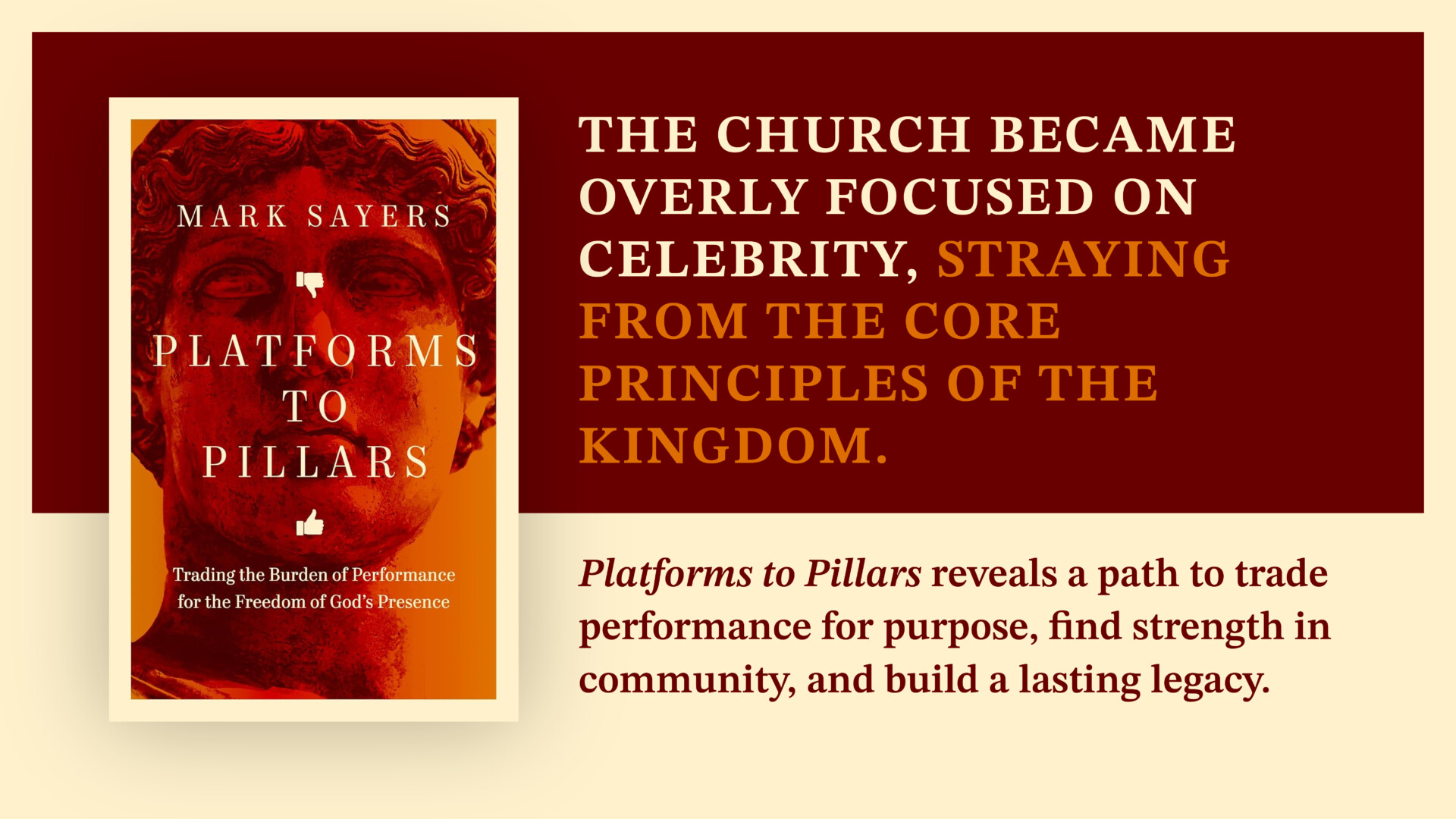 How do we lead in a culture shaped by performance, individualism, and platform?
Platforms to Pillars by cultural commentator Mark Sayers offers a biblical alternative to the platform mentality that dominates our society. Drawing from the ancient world, Sayers challenges Christians to become pillars—people who provide strength and support for others, who live with character and virtue, and who partner with God to advance His kingdom.
This book is a needed call to reject the lure of self-promotion and rediscover the freedom of belonging to God. #Sponsored
]]>
How do we lead in a culture shaped by performance, individualism, and platform?
Platforms to Pillars by cultural commentator Mark Sayers offers a biblical alternative to the platform mentality that dominates our society. Drawing from the ancient world, Sayers challenges Christians to become pillars—people who provide strength and support for others, who live with character and virtue, and who partner with God to advance His kingdom.
This book is a needed call to reject the lure of self-promotion and rediscover the freedom of belonging to God. #Sponsored
]]>
This week, the blog is sponsored by Moody Publishers and is adapted from Platform to Pillars: Trading the Burden of Performance for the Freedom of God’s Presence by Mark Sayers.
A week after I preached my Platforms to Pillars sermon in London, I was leaving a speaking event, feeling exhausted after a brutal season of conflict, betrayal, and discouragement. On this trip, I had the privilege of catching up with other friends who had gone through similar journeys and still longed for God to move. The last few days of my trip filled me with hope, and I prayed that these past days would signal that the long and challenging period I had been walking through would be over.
As I entered St James’s Park tube station, I stood on the platform and rang my wife, Trudi, back home in Australia. Instantly, I could tell that something was wrong. She told me she had gone for a test on a lump in her breast and was called back to the doctor a few days later. “They have done a biopsy on the lump, and it is cancerous.”
I had never felt so far from home as I woke in my hotel room the next day. Yet a remarkable thing began to happen. A truth was revealed to me. Pillars are those who reveal themselves when you need them. They are often hard to see in good times but assemble when the chips are down. Within minutes of waking, friends were calling to offer support. The pastoral team at King’s Cross Church interrupted their schedules to spend the afternoon praying for Trudi and me.
Unable to get an early flight home, I kept my speaking schedule and headed to Oxford to speak at St Aldates Anglican Church. As I walked around Oxford, the streets seemed to give testimony to those pillars who had gone before. I realize the great chain of belief in which I am but a link. Before me have lived great witnesses. Men and women who had walked through suffering, struggle, even martyrdom, yet whose devotion and discipleship still passed the knowledge of God down through the generations.
As I preached my Platforms to Pillars sermon that night, I could feel it was different. This was no longer a theory but a living reality I was stepping into. The pillars felt no longer hidden but incandescent around me, reflecting God’s love.
As we struggled with the news of Trudi’s cancer, the pillars kept appearing around us. Our church rallied in a way I had never seen before. A team of pillars from our church gathered every Monday night to pray for our family as news spread of Trudi’s condition. A wave of prayer began across the world. Amid her pain and the reality of the fragility of her life, Trudi was living as a pillar.
Trudi’s treatment so far has been successful. She now lives from scan to scan, in faith that the cancer will not return, determined to follow God regardless of what the future holds. The suffering, this time of wilderness, has deepened her spiritual authority and sharpened her sense of what is of heavenly value. God has brought around Trudi a new network of those who live and pray as pillars.
Before Trudi’s battle with cancer, I felt discouraged, hurt, and betrayed. I feared for the church’s future and lamented those who had pursued platform and fallen. However, now I see through a different lens. I am amazed by the pillars that fill the church, pointing glory back to God through their lives.
Continue your journey to move beyond platform culture and live as pillars of strength and community.
]]> Through the weekend had many questions about Christian leaders who fall. And I expressed that just as the winds blow hardest against the tallest trees, so temptations may press hardest against the leaders who rise the highest. Just as floods press against shallow roots, so seductive desires rise up against those whose fall would bring the greatest reproach upon the gospel.]]>
Through the weekend had many questions about Christian leaders who fall. And I expressed that just as the winds blow hardest against the tallest trees, so temptations may press hardest against the leaders who rise the highest. Just as floods press against shallow roots, so seductive desires rise up against those whose fall would bring the greatest reproach upon the gospel.]]>
A recent speaking trip took me to the American West Coast. The church there asked Aileen to accompany me and to arrive a couple of days early. Kindly, they wanted to give us time and opportunity to venture to the coast and, along the way, spend some time in the redwood forests of Northern California.
Truly, the redwoods were a sight to behold. Though I brought a camera, I found no spot and no angle that could come close to capturing their magnificence. There is something wondrous about gazing at a tree that reaches 20 feet across and towers 350 feet into the sky. There is something humbling about pondering a tree that has stood for centuries or possibly even millennia. Some of these trees predate the founding of America, the printing press, the Middle Ages, and possibly even the life of Jesus Christ. We can’t help but feel low and small by comparison.
As the day continued and we drove toward the coast, I found myself wondering how redwoods can stand for so long. They tend to grow in low-lying areas that are prone to floods, so how do they keep from being swept away? They stand above every other tree, so how do they withstand the coastal winds that blow in from the ocean and the mountain winds that blow out from the land? I assumed the answer must be that their roots grow extraordinarily far into the ground, that they brace themselves by pressing deep into soil and rock.
But I learned I was wrong. Redwoods actually have remarkably shallow root systems that extend no more than 6 to 12 feet beneath the surface. Instead of depending on depth, they depend on breadth. The roots extend far outward and as they grow, the roots of one tree will twist and wrap around many others until they have formed an entire system that is nearly impossible to topple from above or uproot from beneath. Redwoods are found in groves because they depend upon one another for their growth, their help, and their survival. A lone redwood is soon likely to be a dead redwood, or if not that, a dwarf redwood that never reaches its full potential.
After a couple of days of sightseeing we began a conference and through the weekend had many questions about Christian leaders who fall. And I expressed that just as the winds blow hardest against the tallest trees, so temptations may press hardest against the leaders who rise the highest. Just as floods press against shallow roots, so seductive desires rise up against those whose fall would bring the greatest reproach upon the gospel. In this way, people are much like redwoods, dependent upon others and reliant on their support.
Yet sadly, so many Christian leaders come to believe they have advanced beyond the need for true Christian community. Their fame leads them to believe they have transcended their own local church or perhaps even any local church. Before long, their lives are no longer intertwined with the lives of others who will stabilize them, support them, and provide accountability. When the winds blow hard as they inevitably do, and when floods rise strong as they assuredly must, these people totter and fall. And great is their ruin.
]]> A La Carte: Toxic servant leadership / Taking our stress to the Lord / The problem with habits / Is it wrong for Christians to choose cremation? / Why does your church meet in a house? / Big book and Kindle deals / and more.]]>
A La Carte: Toxic servant leadership / Taking our stress to the Lord / The problem with habits / Is it wrong for Christians to choose cremation? / Why does your church meet in a house? / Big book and Kindle deals / and more.]]>
Good morning. Grace and peace to you.
Today’s Kindle deals include some excellent picks about our current cultural moment. Be sure to consider Carl Trueman’s Strange New World, Ray Ortlund’s The Death of Porn, and Brett McCracken’s The Wisdom Pyramid.
The Problem With Habits (And Why We Still Need Them)
Darryl explains why habits matter so much but can also be problematic. In short, “Spiritual disciplines, while necessary, risk becoming empty routines that distract from their true purpose: bringing us closer to God.”
Is It Wrong for Christians to Choose Cremation?
This is a helpful overview of cremation and what the Bible says about it. “For most of church history, Christians never questioned whether to choose burial or cremation. In 1980 in Canada, only 6% of people opted for cremation—and most of them would have been non-Christians. Today, that figure is over 75% and is a popular option among people of all faiths. How should Christians think about this trend?”
Why Does Your Church Meet in a House?
Without demanding or even necessarily recommending it for everyone, Paul explains why he is committed to churches meeting in houses. “Well, we don’t always meet in houses. We also meet in coffee shops, parks, outdoors, and other locations. We could gather in a more traditional church building but meeting in these other locations is actually strategic.”
There Is Only One Good Fight
There are lots of bad fights we can be drawn into, yet there is really only one good fight.
Taking Our Stress to the Lord
“Take breaks…Be present…You can’t be all things to all people. Meet others where they are. Eliminate hurry. Don’t delay. Know your limits. Start exercising. Strength, not cardio. Stress makes you sick. Drink more water. Strive for connection. Make time for yourself. Get enough sleep to prevent ‘X.’ Wake up early to do ‘X.’ Good enough is good enough. Do your best. Take media breaks. Stay up to date. Say ‘no.’ Do more. … How did you feel as you read that list? I don’t know about you, but I felt stressed!”
Toxic Servant Leadership
This is a helpful warning that even something as good as servant leadership can become toxic.
Flashback: Simon, Would You Still Have Passed That Way?
I would still have passed that way even if I had known I would be mistreated, for by sharing his burden I became the first to share in his sufferings.
]]>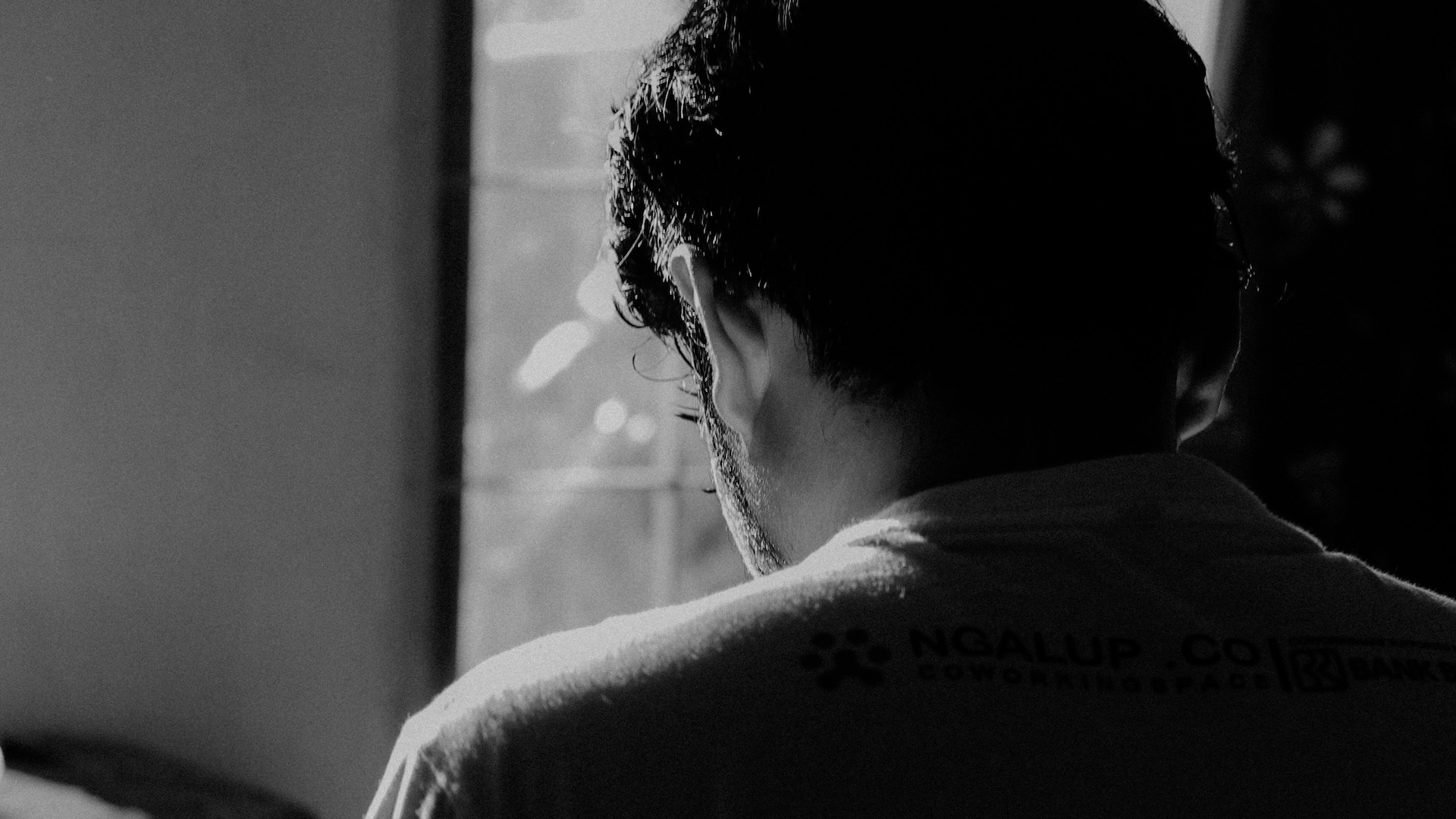 Most Christians expect little from God, ask little, and therefore receive little, and are content with little. Though the Bible calls us to pray and though it promises that "the prayer of a righteous person has great power as it is working," we can still have very modest expectations of what God will accomplish through our prayers. ]]>
Most Christians expect little from God, ask little, and therefore receive little, and are content with little. Though the Bible calls us to pray and though it promises that "the prayer of a righteous person has great power as it is working," we can still have very modest expectations of what God will accomplish through our prayers. ]]>
William Carey founded the modern missions movement on the conviction that we should expect great things from God and therefore attempt great things for God. And indeed, he and a generation of missionaries expected much, attempted much, and accomplished much to the glory of God.
Perhaps Carey’s words were in the back of A. W. Pink’s mind when he pondered the tendency of Christians to expect too little from God and said, “Most Christians expect little from God, ask little, and therefore receive little, and are content with little.” Though the Bible calls us to pray and though it promises that “the prayer of a righteous person has great power as it is working” (James 5:16), we can still have very modest expectations of what God will accomplish through our prayers.
Because we expect little from God, we ask little. And because we ask little from God, we receive little. And because we grow so accustomed to receiving little from God, we grow content with little. We shape our prayers according to our expectations. If we would see God act in mighty ways, we must expect he will act in mighty ways and therefore pray for him to act in mighty ways.
